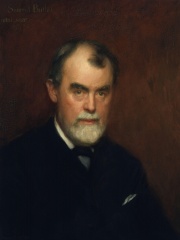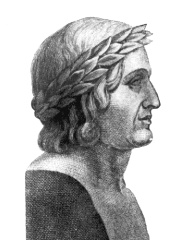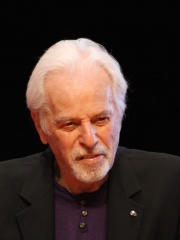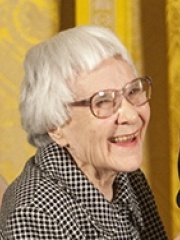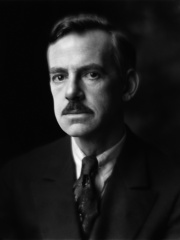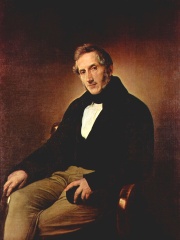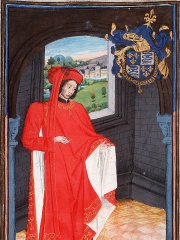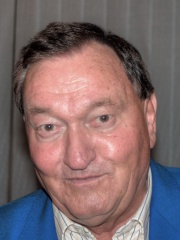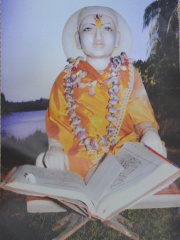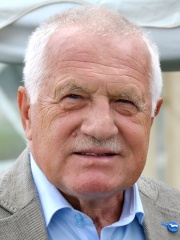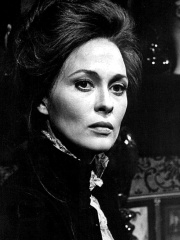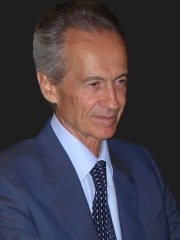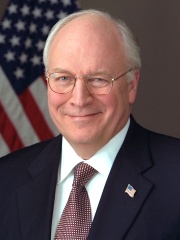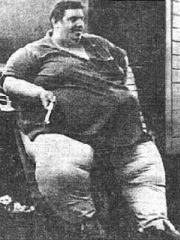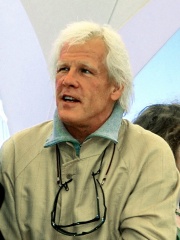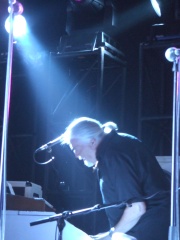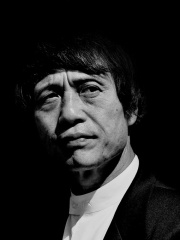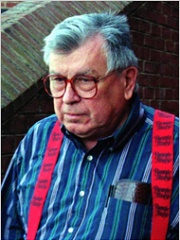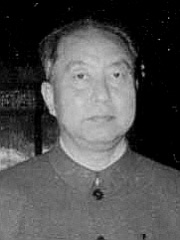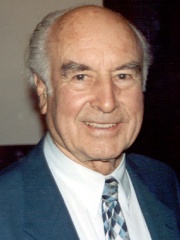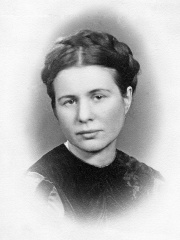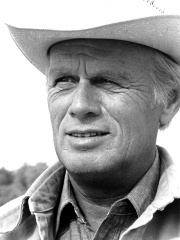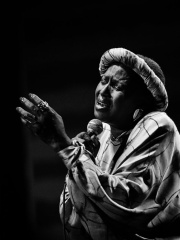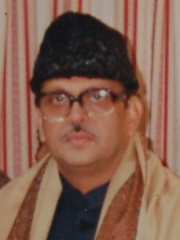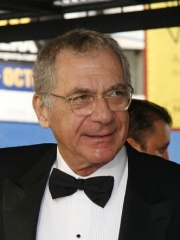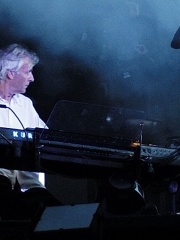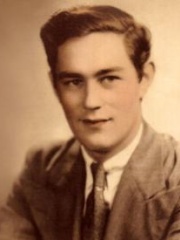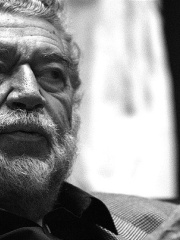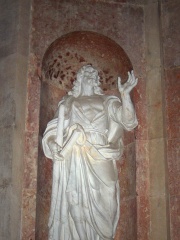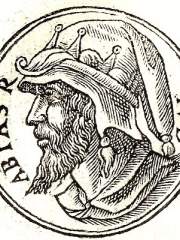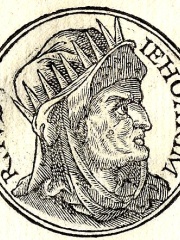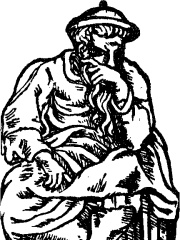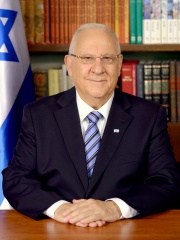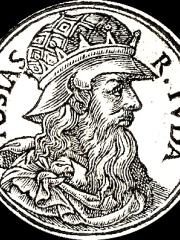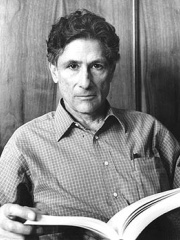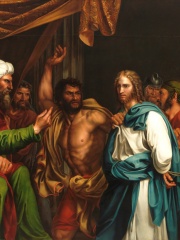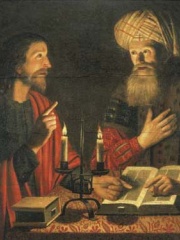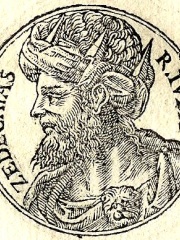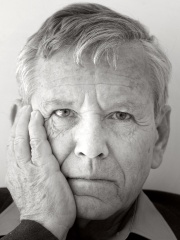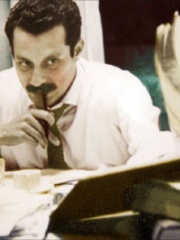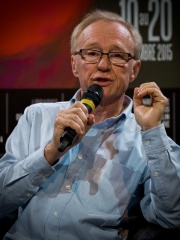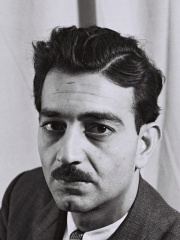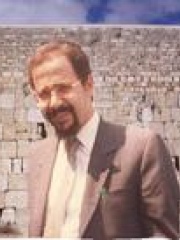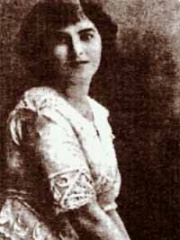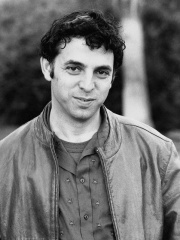Writer
Mahmoud Darwish
1941 - 2008
EN.WIKIPEDIA PAGE VIEWS (PV)
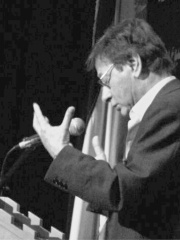
 Mahmoud Darwish
Mahmoud Darwish
His biography is available in 57 different languages on Wikipedia (up from 56 in 2024). Mahmoud Darwish is the 465th most popular writer (down from 363rd in 2024), the 66th most popular biography from Israel (down from 60th in 2019) and the 3rd most popular Israeli Writer.
Mahmoud Darwish is a Palestinian poet and author. He is most famous for his poems about the Palestinian people's struggle for independence.
Memorability Metrics
Page views of Mahmoud Darwish by language
Among Writers
Among writers, Mahmoud Darwish ranks 465 out of 7,302. Before him are Dan Brown, Samuel Butler, Statius, Thomas Bernhard, Alejandro Jodorowsky, and Harper Lee. After him are Eugene O'Neill, Alessandro Manzoni, Charles, Duke of Orléans, Erich von Däniken, Tulsidas, and Mo Yan.
Most Popular Writers in Wikipedia
Go to all RankingsDan Brown
1964 - Present
HPI: 73.29
Rank: 459
Samuel Butler
1835 - 1902
HPI: 73.29
Rank: 460
Statius
40 - 96
HPI: 73.28
Rank: 461
Thomas Bernhard
1931 - 1989
HPI: 73.28
Rank: 462
Alejandro Jodorowsky
1929 - Present
HPI: 73.28
Rank: 463
Harper Lee
1926 - 2016
HPI: 73.28
Rank: 464
Mahmoud Darwish
1941 - 2008
HPI: 73.27
Rank: 465
Eugene O'Neill
1888 - 1953
HPI: 73.26
Rank: 466
Alessandro Manzoni
1785 - 1873
HPI: 73.23
Rank: 467
Charles, Duke of Orléans
1394 - 1465
HPI: 73.21
Rank: 468
Erich von Däniken
1935 - 2026
HPI: 73.20
Rank: 469
Tulsidas
1532 - 1623
HPI: 73.16
Rank: 470
Mo Yan
1955 - Present
HPI: 73.16
Rank: 471
Contemporaries
Among people born in 1941, Mahmoud Darwish ranks 30. Before him are Václav Klaus, Faye Dunaway, M. Stanley Whittingham, Julia Kristeva, Fausto Cercignani, and Dick Cheney. After him are Laura Antonelli, Jon Brower Minnoch, Franco Nero, Nick Nolte, Jon Lord, and Tadao Ando. Among people deceased in 2008, Mahmoud Darwish ranks 18. Before him are Daniel Carleton Gajdusek, Hua Guofeng, Albert Hofmann, Irena Sendler, Richard Widmark, and Miriam Makeba. After him are Vishwanath Pratap Singh, Sydney Pollack, Jørn Utzon, Richard Wright, Henry Molaison, and Alain Robbe-Grillet.
Others Born in 1941
Go to all RankingsVáclav Klaus
POLITICIAN
1941 - Present
HPI: 73.98
Rank: 24
Faye Dunaway
ACTOR
1941 - Present
HPI: 73.95
Rank: 25
M. Stanley Whittingham
CHEMIST
1941 - Present
HPI: 73.91
Rank: 26
Julia Kristeva
PHILOSOPHER
1941 - Present
HPI: 73.68
Rank: 27
Fausto Cercignani
WRITER
1941 - Present
HPI: 73.47
Rank: 28
Dick Cheney
POLITICIAN
1941 - 2025
HPI: 73.31
Rank: 29
Mahmoud Darwish
WRITER
1941 - 2008
HPI: 73.27
Rank: 30
Laura Antonelli
ACTOR
1941 - 2015
HPI: 73.26
Rank: 31
Jon Brower Minnoch
CELEBRITY
1941 - 1983
HPI: 73.17
Rank: 32
Franco Nero
ACTOR
1941 - Present
HPI: 73.03
Rank: 33
Nick Nolte
ACTOR
1941 - Present
HPI: 72.90
Rank: 34
Jon Lord
MUSICIAN
1941 - 2012
HPI: 72.85
Rank: 35
Tadao Ando
ARCHITECT
1941 - Present
HPI: 72.31
Rank: 36
Others Deceased in 2008
Go to all RankingsDaniel Carleton Gajdusek
PHYSICIAN
1923 - 2008
HPI: 75.08
Rank: 12
Hua Guofeng
POLITICIAN
1921 - 2008
HPI: 74.87
Rank: 13
Albert Hofmann
CHEMIST
1906 - 2008
HPI: 74.84
Rank: 14
Irena Sendler
SOCIAL ACTIVIST
1910 - 2008
HPI: 74.81
Rank: 15
Richard Widmark
ACTOR
1914 - 2008
HPI: 73.55
Rank: 16
Miriam Makeba
SINGER
1932 - 2008
HPI: 73.35
Rank: 17
Mahmoud Darwish
WRITER
1941 - 2008
HPI: 73.27
Rank: 18
Vishwanath Pratap Singh
POLITICIAN
1931 - 2008
HPI: 72.82
Rank: 19
Sydney Pollack
FILM DIRECTOR
1934 - 2008
HPI: 72.70
Rank: 20
Jørn Utzon
ARCHITECT
1918 - 2008
HPI: 72.53
Rank: 21
Richard Wright
MUSICIAN
1943 - 2008
HPI: 72.00
Rank: 22
Henry Molaison
RELIGIOUS FIGURE
1926 - 2008
HPI: 71.53
Rank: 23
Alain Robbe-Grillet
WRITER
1922 - 2008
HPI: 71.52
Rank: 24
In Israel
Among people born in Israel, Mahmoud Darwish ranks 66 out of NaN. Before him are James, son of Alphaeus (-10), Abijah of Judah (-1000), Jehoiakim (-634), Rabbi Akiva (50), Berenice (28), and Reuven Rivlin (1939). After him are Manasseh of Judah (-800), Josiah (-648), Edward Said (1935), Annas (-22), Nicodemus (-50), and Zedekiah (-617).
Others born in Israel
Go to all RankingsJames, son of Alphaeus
RELIGIOUS FIGURE
10 BC - 62
HPI: 73.61
Rank: 60
Abijah of Judah
POLITICIAN
1000 BC - 911 BC
HPI: 73.59
Rank: 61
Jehoiakim
POLITICIAN
634 BC - 598 BC
HPI: 73.57
Rank: 62
Rabbi Akiva
RELIGIOUS FIGURE
50 - 136
HPI: 73.50
Rank: 63
Berenice
POLITICIAN
28 - 80
HPI: 73.48
Rank: 64
Reuven Rivlin
POLITICIAN
1939 - Present
HPI: 73.43
Rank: 65
Mahmoud Darwish
WRITER
1941 - 2008
HPI: 73.27
Rank: 66
Manasseh of Judah
POLITICIAN
800 BC - 642 BC
HPI: 73.22
Rank: 67
Josiah
POLITICIAN
648 BC - 609 BC
HPI: 73.17
Rank: 68
Edward Said
WRITER
1935 - 2003
HPI: 73.06
Rank: 69
Annas
RELIGIOUS FIGURE
22 BC - 66
HPI: 72.86
Rank: 70
Nicodemus
RELIGIOUS FIGURE
50 BC - 100
HPI: 72.75
Rank: 71
Zedekiah
POLITICIAN
617 BC - 550 BC
HPI: 72.66
Rank: 72
Among Writers In Israel
Among writers born in Israel, Mahmoud Darwish ranks 3. Before him are John the Evangelist (10), and Amos Oz (1939). After him are Edward Said (1935), Ghassan Kanafani (1936), David Grossman (1954), A. B. Yehoshua (1936), Emile Habibi (1922), Justus of Tiberias (35), Ahron Daum (1951), May Ziade (1886), and Etgar Keret (1967).
John the Evangelist
10 - 100
HPI: 77.45
Rank: 1
Amos Oz
1939 - 2018
HPI: 74.93
Rank: 2
Mahmoud Darwish
1941 - 2008
HPI: 73.27
Rank: 3
Edward Said
1935 - 2003
HPI: 73.06
Rank: 4
Ghassan Kanafani
1936 - 1972
HPI: 68.23
Rank: 5
David Grossman
1954 - Present
HPI: 67.54
Rank: 6
A. B. Yehoshua
1936 - 2022
HPI: 64.76
Rank: 7
Emile Habibi
1922 - 1996
HPI: 62.58
Rank: 8
Justus of Tiberias
35 - 100
HPI: 60.79
Rank: 9
Ahron Daum
1951 - 2018
HPI: 60.63
Rank: 10
May Ziade
1886 - 1941
HPI: 60.62
Rank: 11
Etgar Keret
1967 - Present
HPI: 58.82
Rank: 12

